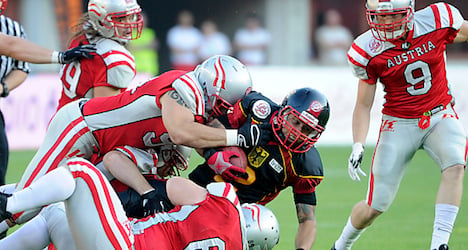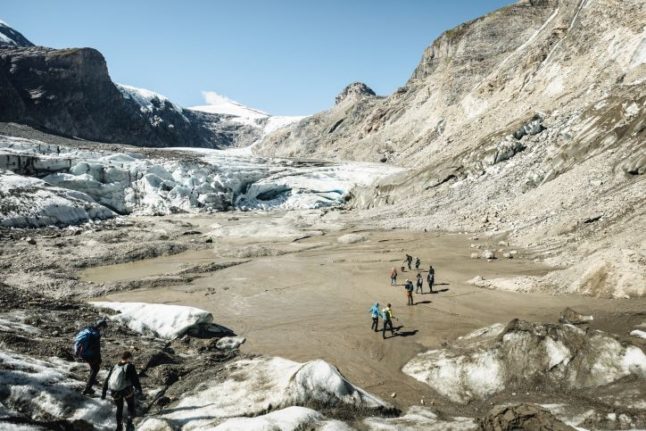In a game characterized by some great plays and a few (for the Austrian fans) questionable decisions by the British referee, Germany has retained the European championship in gridiron football in Vienna's Ernst Happel stadium on a warm Saturday evening.
Although the stadium was nowhere near its full capacity of 50,000 seats, enough places were filled – estimated at 27,000 by APA – to demonstrate a healthy interest in the sport in Austria.
The final touchdown occurred as a result of a penalty play close to Austria's goal line. The pass to the receiver flew cleanly over the outstretched hands of the Austrian defenders, to the German player who made it unopposed into the Austrian touchdown zone.
Reaction from Austrian fans on Twitter was somewhat mixed, with one called Luke Skywalker saying "Great. The refs decided the game. Yeah, supergreat."
Another comment came from Alexander Pöllmann, saying "Boooooooo! WTF is wrong with these EFAF referees? Let's show them 'Unsportsmanlike Conduct'… Team Austria is supposed to be Champion!"
On a more positive note, Martin Pircher said "Our TeamAustria can be extremely proud of themselves. They're number 2 in Europe.. Super game!"



 Please whitelist us to continue reading.
Please whitelist us to continue reading.
Member comments